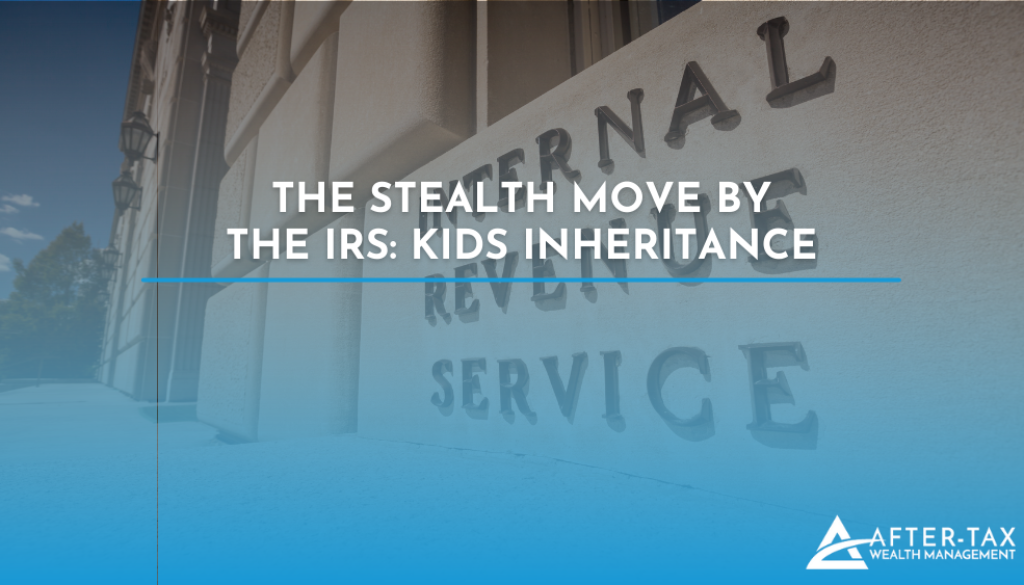The Stealth Move by the IRS & Kids’ Inheritance
New ruling emphasizes the need for an adaptive estate planning approach
One recent development that has stirred conversations among investors and advisors alike is the issuance of the IRS Revenue Ruling 2023-2.
This ruling has presented a unique set of challenges and opportunities for estate planning, especially for those employing irrevocable trusts as part of their wealth management strategy.
The Stealth Shift by the IRS
In March 2023, the IRS subtly altered the rules on the tax treatment of assets held in irrevocable trusts. This change, detailed in Revenue Ruling 2023-2, has significant implications for the future of estate planning.
The ruling states that assets held in an irrevocable trust ‘that is not included in the taxable estate at death’ will no longer receive a step-up in basis.
Understanding the Step-Up In Basis
To comprehend the full scope of this change, it’s crucial to understand what ‘step-up in basis’ means. When an individual acquires an asset, its original cost is considered its ‘basis.’ If the asset appreciates over time, the difference between the initial basis and the selling price is what generates a capital gain, which is subject to capital gains tax.
Historically, there has been an exception to this rule when assets are transferred upon the death of the owner. In this instance, the basis is ‘stepped-up’ to the fair market value at the time of the owner’s death, effectively eradicating any capital gains and associated taxes.
Impact on Irrevocable Trusts
In the past, it was ambiguous whether assets transferred via an irrevocable trust would benefit from the step-up in basis. Many families have used irrevocable trusts to safeguard their assets from spend-down, aiming to qualify for government benefits such as Medicaid and VA Aid and Attendance.
The new IRS ruling has clarified that assets held in an irrevocable trust that is not included in the taxable estate at death will no longer receive a step-up in basis. This implies that the potential for capital gains tax may loom over any significant asset appreciation since the original purchase.
How Your Financial Professional Can Help
These changes by the IRS could significantly affect estate planning, adding potential tax burdens for beneficiaries of irrevocable trusts. This makes it all the more crucial for individuals to have an open line of communication with their financial professionals.
This ruling emphasizes the need for an adaptive estate planning approach, and underscores the importance of maintaining a strong investor-financial professional relationship. By engaging in regular, transparent discussions about such changes and their implications, financial professionals and investors can better navigate this evolving tax landscape together.
The end goal remains unchanged: working towards the optimal preservation and transition of wealth to the next generation.
-
Important Disclosures
Content in this material is for educational and general information only and not intended to provide specific advice or recommendations for any individual.
This information is not intended to be a substitute for specific individualized tax or legal advice. We suggest that you discuss your specific situation with a qualified tax or legal advisor.
LPL Financial Representatives offer access to Trust Services through The Private Trust Company N.A., an affiliate of LPL Financial.
This article was prepared by FMeX.
LPL Tracking #1-05375318




